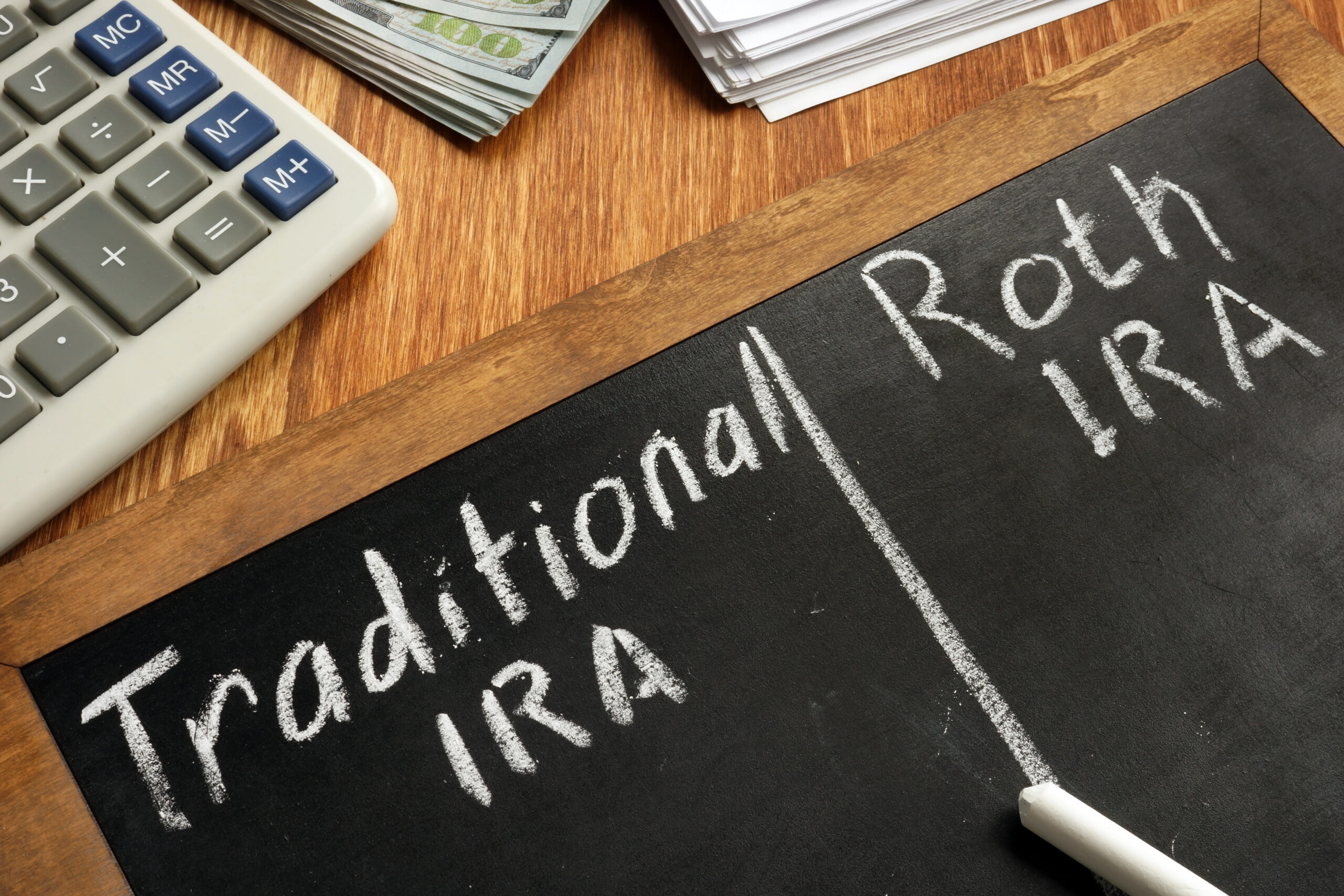Choosing Roth Vs. Traditional Contributions in your Company’s 401(k) Plan
When it comes to saving for retirement, there are several options for retirement accounts you can contribute to. One decision you are likely to make is how to allocate your contributions in your company’s 401(k) plan. Specifically, you will need to decide whether to make traditional or Roth contributions. Both options have advantages and disadvantages, so it’s important to weigh your options carefully before deciding, as this can have a significant impact on your overall financial plan.
Traditional 401(k) Contributions
Traditional 401(k) contributions are tax-deferred, which means that you won’t have to pay taxes on the money you contribute until you withdraw it, generally during retirement planning. This can be a major advantage if you expect to be in a lower tax bracket during retirement than you are now. By deferring taxes until later, you may be able to reduce your overall tax burden.
Another advantage of traditional 401(k) contributions is that they may lower your taxable income in the current year. This can be especially beneficial if you are in a high tax bracket and want to reduce your tax liability.
However, traditional 401(k) contributions also have some disadvantages. For example, you will have to pay taxes on your contributions and earnings when you withdraw them during retirement. Additionally, if you withdraw funds before age 59 1/2, you may have to pay a 10% early withdrawal penalty in addition to the taxes you pay on the distribution.
Roth 401(k) Contributions
Roth 401(k) contributions are funded with after-tax dollars, which means you won’t have to pay taxes on your contributions or earnings when you withdraw them during retirement. This can be a major advantage if you expect to be in a higher tax bracket during retirement than you are now. By paying taxes now, you may be able to reduce your overall tax burden later.
Another advantage of Roth 401(k) contributions is that there are no required minimum distributions (RMDs) at a certain age. This means you can leave your funds in your account to continue to grow tax-free for as long as you want.
However, Roth 401(k) contributions also have some disadvantages. For example, they do not reduce your taxable income in the current year, which can be a disadvantage if you are in a high tax bracket and want to reduce your tax liability. Additionally, Roth contributions may not be available in all 401(k) plans, so you will need to check with your employer to see if they offer this option.
In-Plan Roth Conversions
A third option to consider is making in-plan Roth conversions, where you take pre-tax contributions and convert them to Roth contributions within the plan. This would be similar to making Roth conversions from an IRA for tax purposes. The amount you convert will become taxable, but the money would grow tax-free in the Roth account. You may find this option helpful if you have variable income and are in a lower bracket in some years.
Factors to Consider
When deciding whether to make traditional or Roth contributions in your company’s 401(k) plan, there are several factors to consider. These include:
Your current tax bracket: If you are in a high tax bracket now, you may want to consider traditional contributions to reduce your tax liability. If you are in a low tax bracket, Roth contributions may be a better option.
Your future tax bracket: If you expect to be in a higher tax bracket during retirement, Roth contributions may be a better option. If you expect to be in a lower tax bracket, traditional contributions may be a better option.
Your investment time horizon: The longer you have until retirement, the more time your investments have to grow tax-free. This can be a major advantage of Roth’s contributions.
Your desire for flexibility: Traditional contributions offer more flexibility in terms of when you can withdraw funds without penalty. Roth contributions may be less flexible in this regard.
Your estate planning goals: If you want to leave your funds to your heirs, Roth contributions may be a better option since they are tax-free to beneficiaries. However, if you plan to spend down your savings during retirement planning, traditional contributions may be a better option.
How to Decide
Ultimately, the decision of whether to make traditional or Roth contributions in your company’s 401(k) plan will depend on your individual financial situation and goals. Consider working with a CERTIFIED FINANCIAL PLANNERTM to help you make this decision as part of a comprehensive financial plan. At B&C Financial Advisors, we help our clients make these decisions and even offer management of your company retirement plan to align with your overall investment plan.
Related Tag: CERTIFIED FINANCIAL PLANNERTM

